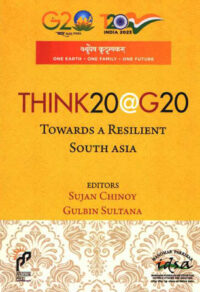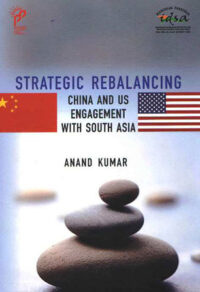How will India Respond to Civil War in Pakistan?
In 1971, India intervened militarily on behalf of Bengalis in the civil war in East Pakistan, dividing the country into two. The prospect of another civil war in Pakistan pitting radical Islamists against the secular but authoritarian military raises questions about the possibility, timing, objective, and nature of another Indian intervention.
Future of Golden BRICS
With the successful holding of the fifth summit of Brazil, Russia, India, China and South Africa (BRICS) in Durban during March 26–27, 2013, this influential group of emerging economies completed its first important phase of genesis and evolution. The idea was floated in 2001 as an ‘acronym’ created by an investment banker of Goldman Sachs, Jim O'Neil who believed that the fast-growing economies of Brazil, Russia, China and India would be the single greatest game changers in coming times.
Beyond the Rhetoric of Trilateral Cooperation
Over the past few years, ‘trilateral economic cooperation’ and ‘vibrant bridge’ have become buzzwords in Nepal’s foreign policy discourse, and have also caught the popular imagination at home in India. These proposals have generated both curiosity and anxiety in Delhi’s diplomatic and academic circles that are otherwise largely indifferent to Nepal. The Chinese diplomats in Delhi also raising the issue with the Indian officials has added to India’s anxiety all the more. With some notable exceptions (e.g., C.
A Compromise with India’s Sphere of Influence
Integrating the restive Tibetan minority with China has been the primary domestic challenge for Beijing. Thus far, its Nepal policy has been crafted essentially to address the Tibetan question. The idea of trilateral cooperation between India, Nepal and China apparently floated by Pushpa Kamal Dahal (Prachanda) in April 2013 was, in effect, first made by the former Chinese ambassador to Nepal, Yang Houlan, in 2012.
Neither Feasible nor Desirable
Trilateral cooperation between India, Nepal and China needs to be seen from the perspective of how beneficial it is for all three countries. However, such cooperation cannot be divorced from India’s security concerns and its close relations with Nepal. Moreover, there are several issues that come into question, too. Are there any objectives behind this proposal? Does it involve only developmental cooperation? Does it undermine India’s security interests?
More Questions than Answers
Prachanda’s proposal for trilateral cooperation between India, Nepal and China seems reasonable on the face of it. However, both China and Nepal should be aware that it will create a lot of misunderstandings in India. The reasons for this are as follows:
Caution is the Key
Pushpa Kamal Dahal, alias Prachanda, made the trilateral proposal during his official visit to India in April 2013. This was the third time since 2010 that Prachanda had raised this issue. This concept seems to be a modified version of his earlier ‘equidistance policy’, which was declared after he became prime minister in September 2008. He proposed trilateral cooperation for the first time in October 2010 after visiting Beijing.
Is India–Nepal–China Trilateral Cooperation Possible?
Pushpa Kamal Dahal, alias Prachanda, the chairman of the United Communist Party of Nepal (UCPN) (Maoist), visited India on April 27–30, 2013, shortly after he had returned from a week-long visit to China. During his visits to China and India, Prachanda proposed trilateral cooperation between India, Nepal and China. Although he assured India that this trilateral cooperation would be founded on the bilateral relations that Nepal already shares with India, he clearly did not elaborate on the nature of this trilateral cooperation and the issues that need to be discussed within this framework.
Peace or War Journalism: Case Study of the Balochistan Conflict in Pakistan
Analysing peace journalism is a difficult task, especially within the context of an ongoing conflict. This study looks at peace journalism as it relates to the Balochistan/Pakistan conflict. Balochistan is a Pakistani province that makes up a large part of the country and is rich in natural resources. The Pakistani government has employed a policy of resource exploitation in the province, withholding any due share of profit from the Baloch.
Will Pakistan’s India Policy under Sharif Shift Strategically?
The May 2013 parliamentary elections in Pakistan led to a stable government under the Pakistan Muslim League-Nawaz (PML-N). Prime Minister Sharif promised a shift of the country’s India policy. Given his track record, the current pressing economic and security imperatives and recent improvements in Indo-Pakistan trade relations, the popular optimism is understandable and the first steps of rapprochement are to be expected.

















